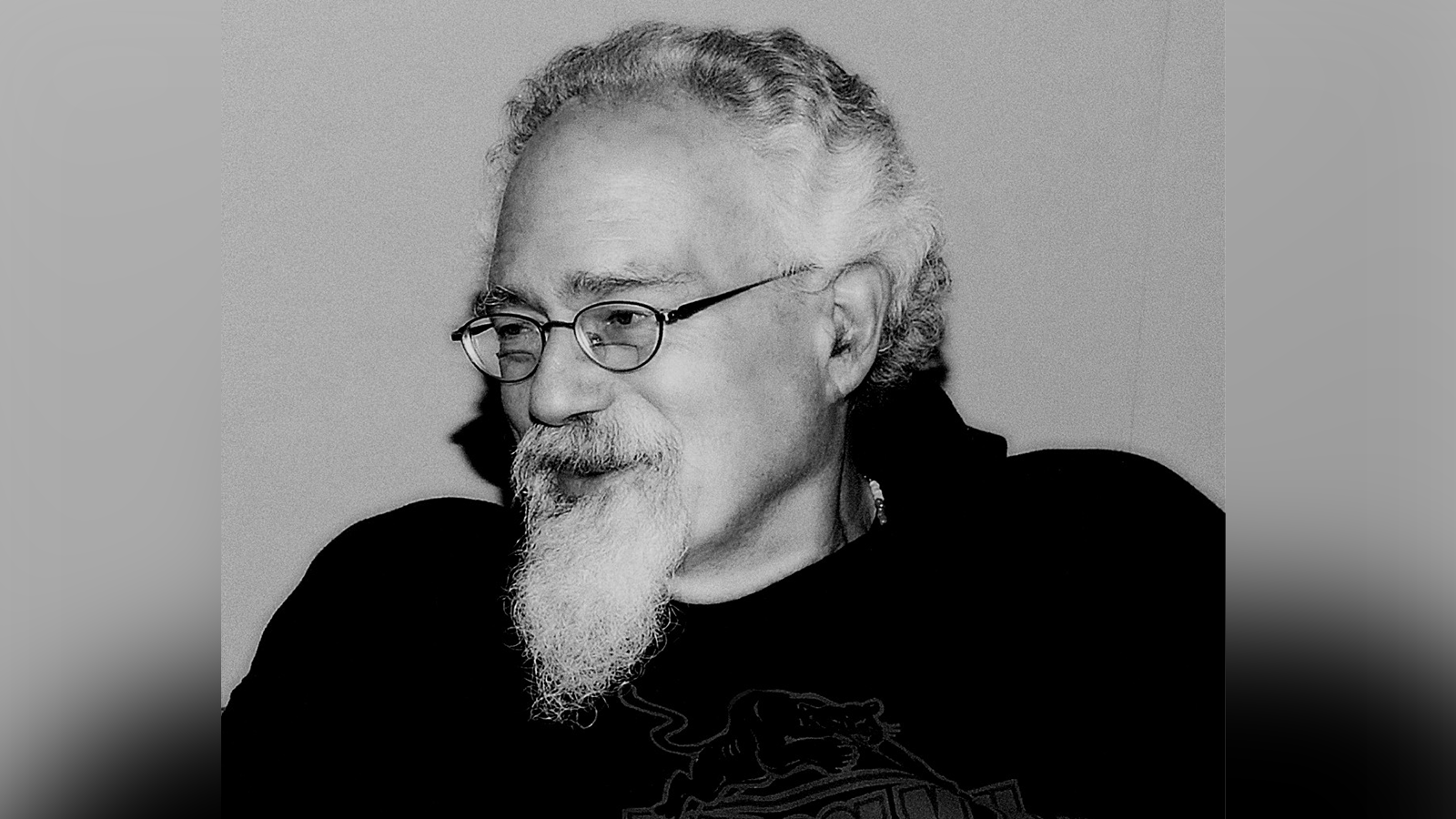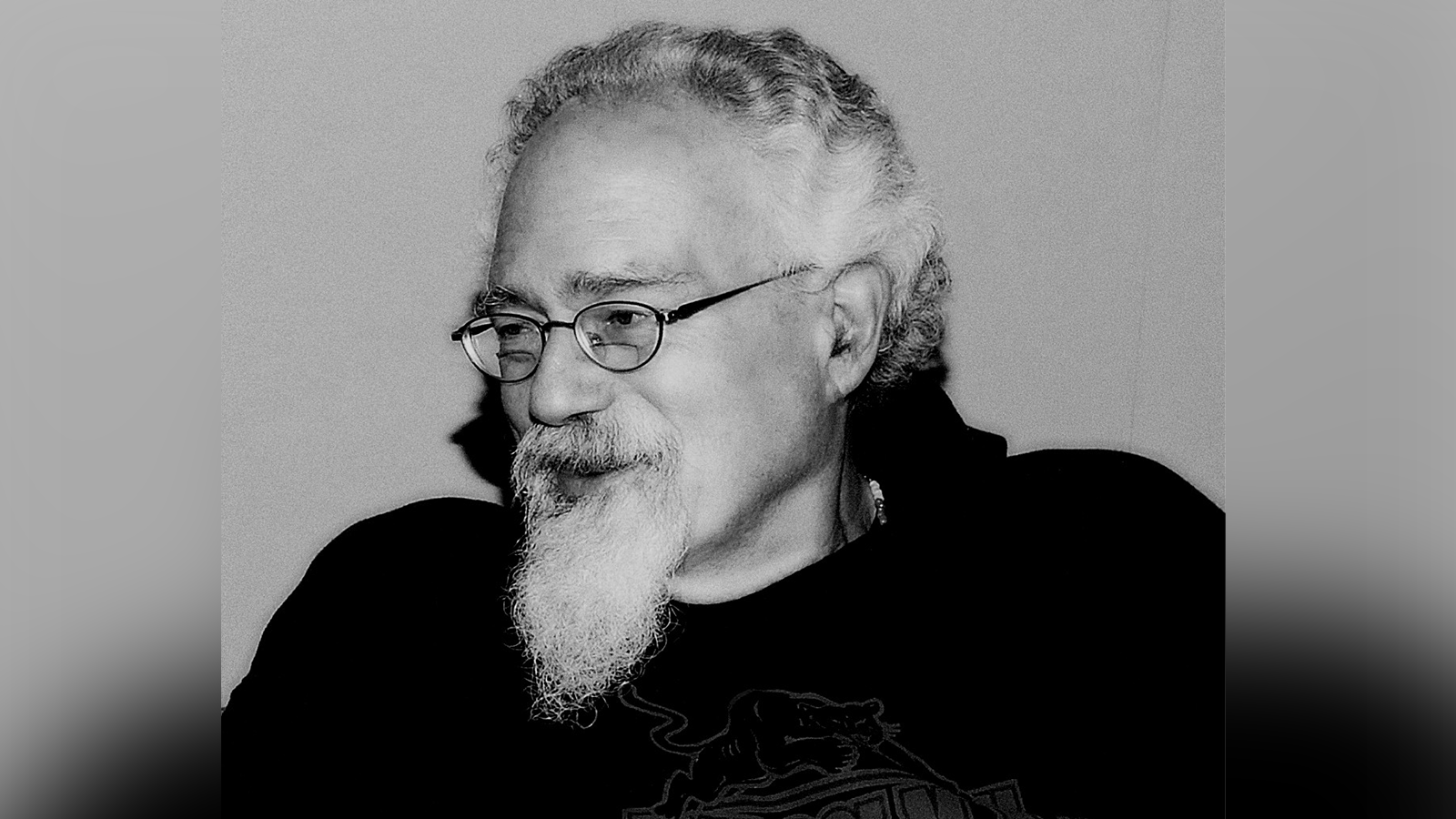
Legends often look different up close than they do from afar. When it comes to cannabis and punk rock legend John Sinclair — a 50-year marijuana advocate whose 1967 high-profile arrest helped bring an end to Michigan’s restrictive drug laws — he’s not exactly feeling legendary these days.
When asked what his day looks like, the 77-year-old credited for helping define the punk rock aesthetic as the manager of the Stooges and MC5, said “grim.”
But his life bouncing back and forth between Amsterdam and Detroit has brought him to a colorful street just south of 8 Mile Road, where his neighbors at a nearby cafe and community center check in on him, and help him with daily tasks as he recovers from surgery. He’s formed a partnership with Robert Pizzimenti, a chiropractic doctor, to make the Psychedelic Healing Shack and Vegetarian Cafe across from Palmer Park along Woodward Avenue in Detroit a smoking lounge for marijuana users to peacefully smoke cannabis in a social setting.
Since Michigan‘s vote to legalize adult-use marijuana in November 2018, the refrain from local media has been the same: Legalization has vindicated Sinclair. But when asked whether he agrees with this sentiment, he laughed.
“I don’t need vindication,” Sinclair told Weedmaps News. “I was always right!”
10 Years For Two Joints
Sinclair may have achieved immortality when John Lennon and Yoko Ono came to his aid at the 1971 John Sinclair Freedom Rally, a protest concert in response to his incarceration.
Before the bust, Sinclair had become the target of federal and local authorities — including Detroit’s anti-communist Red Squad — for his pro-marijuana, anti-war politics, and exposing suburban youth to a revolution driven by rock n’ roll and weed as the manager of the MC5.
After the 1967 Detroit riot, the Stooges and the MC5 had moved to Ann Arbor, near the University of Michigan, returning to Detroit to perform at the Grande Ballroom.
“We had too much trouble with the police,” he said of Detroit in ’67. “It got worse after the riots. The police got worse.”
Sinclair and local advocates reduced the penalty for marijuana possession within the city to a $5 fine. He attributes their success to the soft-touch approach of Ann Arbor police. The university was the breeding ground for the Midwest’s new elite, and the demographics were the exact opposite of Detroit’s.
Sinclair was arrested in 1967 for gifting two joints to an undercover narcotics agent, convicted, and sentenced to 10 years in prison in 1969. The sentence was considered draconian and excessive even during the Nixon era.
Yoko Ono and John Lennon perform during the John Sinclair Freedom Rally on Dec. 10, 1971, at the Crisler Arena in Ann Arbor, Michigan. After two marijuana joints were given as gifts to an undercover narcotics agent, the punk-rock band manager was convicted and sentenced to 10 years in prison in 1969. (Wikimedia Commons)
The growing counterculture movement rallied to Sinclair’s cause, as high-profile acts such as Stevie Wonder, Phil Ochs, and Allen Ginsberg attracted 15,000 to a marijuana-smoke-filled night of music and speeches in support. “Ten for two,” Lennon sang at about 3 a.m. to the Ann Arbor crowd. “What else more could the bastards do?”
Within three days of the Dec. 10, 1971 performance, Sinclair was out on appeal bond, neither having pleaded guilty nor exchanging information for a lighter sentence. In March 1972, his conviction was overturned by the Michigan Supreme Court. Immediately following his release, the Michigan laws that categorized cannabis as a narcotic in the same class as heroin were declared unconstitutional. Michigan was left without any marijuana laws, technically making it the first state with legal weed for 22 days, as detailed in a 2018 Lansing State Journal report.
“They didn’t really see the irony of this,” Sinclair said. “But we did.” Sinclair and other advocates planned a April 1, 1972, gathering on the University of Michigan campus to smoke and flaunt their newfound, if fleeting, freedom to the authorities. It became an annual festival dubbed the Hash Bash, which is held in Ann Arbor to this day.
The Stoned Poet
In the years since, Sinclair has become a big name in cannabis culture. In 2007, he gave permission to Reeferman Seeds to use his name for a unique phenotype of Red Congolese. The bright green sativa was popular in Amsterdam coffeeshops, and placed fourth in 2006’s High Times Cannabis Cup. When asked, Sinclair remembers little of the strain’s characteristics, other than having to pay to try it at De Dampkring, near Amsterdam’s famous Leidseplein Square.
“I thought they should have given me a year supply at least,” Sinclair said.
He does remember his first encounter with cannabis – reading “On The Road” by Jack Kerouac as a junior in high school. To this day, he remains a self-described beatnik, and has poetry credentials to support that claim. In 1971, he wrote a near 10,000 word essay, “The Marijuana Revolution,” about how “Marijuana took rock and roll into the future, and rock and roll took marijuana to the masses so they could climb into the future too.”
‘I smoke all day, everyday. I’m about ready for one now.’ — John Sinclair, cannabis advocate and culture icon Click To Tweet
Sinclair believes that cannabis helped him appreciate Sun Ra, Elmore James, Sun House, Miles Davis, and the free jazz that inspired the MC5 by heightening their consciousness. He also believes his marijuana use makes him a better writer, along with other habits, like completing the New York Times Crossword Puzzle and reading three newspapers a day.
“I smoke all day, every day,” Sinclair said. “I’m about ready for one now.”
After Michigan’s successful November 2018 vote to legalize adult-use marijuana, John Sinclair laughed at media narratives saying he was vindicated. “I was always right!” Sinclair boasted.
Even during his incarceration, Sinclair found a way to smoke. “When I was in Marquette [Branch Prison] I had a system where I got hash in a pen. When I’d go into the visiting room I’d be wearing a red pen. My people would bring me an exact pen, stuffed with hash. And then I would smoke a little hash every night after dinner.”
These days, Sinclair keeps a small case of pre-rolls on deck, and holds up the jars he receives from his caregiver in triumph. It’s okay to be more in touch with his surroundings. The entire state of Michigan has felt the impact of his life’s work.
Featured Image: John Sinclair was the manager of punk bands MC5 and the Stooges. After his conviction for giving marijuana to an undercover narcotics agent, the Michigan Supreme Court overturned his 10-year prison sentence in 1972. (Photo by Goodphotographer via Wikimedia Commons; used with a Creative Commons Attribution 3.0 Unported license)












